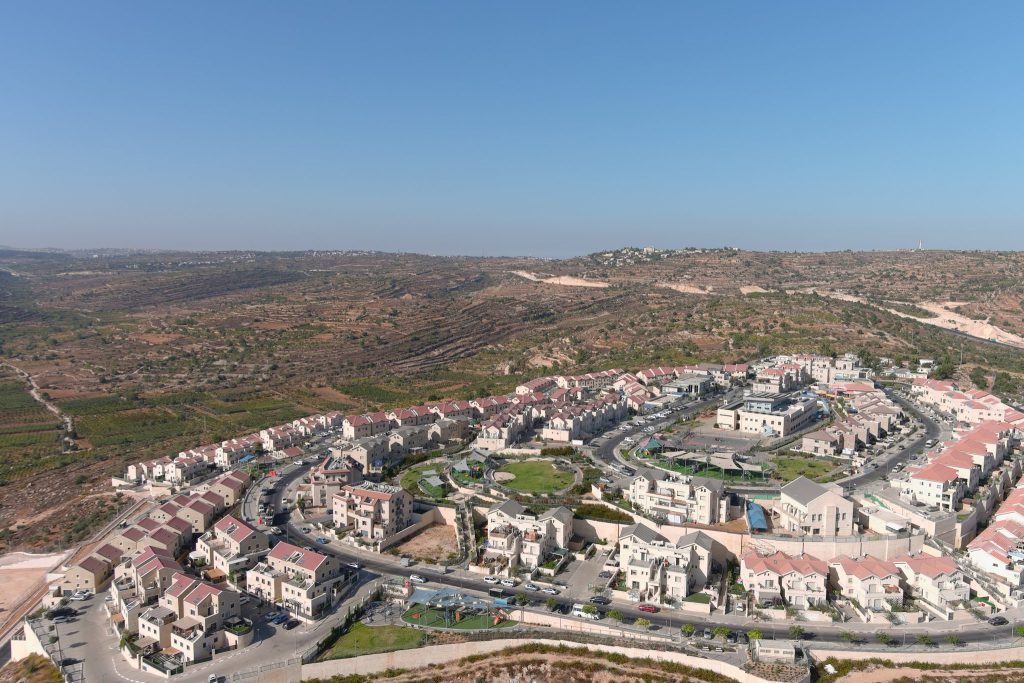
This evening (Tuesday) the High Court of Justice rejected a “Peace Now” petition arguing that Israel’s land allocation policy in Judea and Samaria is discriminatory and demanding that territory be granted to Palestinians in Efrat. Regavim: “As far as the left-wing organizations are concerned, no tactic is off limits when it comes to harming the State of Israel.“
A panel of Supreme Court judges led by Chief Justice Esther Hayut today rejected a petition filed by Peace Now on behalf of Arab residents of Bethlehem, claiming discrimination in Israel’s land allocation policy. In an earlier stage of the case, Israeli authorities proposed that the Palestinians submit a request for allocation of a 51 dunam plot in the area designated for Efrat’s newest neighborhood; representatives of Peace Now rejected the proposal, claiming that it is “not even a Band-Aid on the systemic discrimination.”
The current petition, submitted on behalf of 13 Arab residents of Bethlehem, demanded that the state allocate land in the area of a future neighborhood of the Jewish community of Efrat, the Eitam Hill. The petition made a precedent-setting argument against Israel’s land allocation policy in general, claiming that there should be parity between land allocations for Jewish and Arab use in Area C, the portion of Judea and Samaria under full Israeli jurisdiction.
The petition followed a long and winding legal battle, with roots dating back some 30 years to the establishment of Efrat on state land in Gush Etzion. “This petition represents a new tactic: In addition to the back-door methods of Palestinian annexation – illegal construction and agricultural landgrabs – Peace Now is trying to open the front door for the Palestinian Authority’s takeover of Area C through Israel’s High Court,” explained Avraham Binyamin, Director of Policy and Parliamentary Affairs at Regavim. “The petition argues that the state discriminates against the Palestinians in the way it allocates land – but completely ignores the reality on the ground, in which the Palestinian Authority already controls nearly half of Judea and Samaria, and has vast available land reserves to which Jewish residents have no access.”
Binyamin added: “Far-left organizations will stop at nothing in their attempts to torpedo the growth of Jewish communities on the one hand, and promote the Palestinian takeover of Judea and Samaria for a Palestinian state, on the other hand. As far as they are concerned, any and all means, including causing harm to vital Israeli interests and causing harm to Israel’s reputation and integrity, are acceptable.”
The High Court rejected the claim of discrimination, noting that the state had, in fact, opened the door to Palestinian requests for land allocations.
Attorney Boaz Arzi of Regavim’s Legal Division noted that although the High Court rejected this petition, the state took its first step on a slippery slope by declaring that it will, under certain circumstances, agree to allocate land in Area C to Arab petitioners. “There is absolutely no justification for giving land away, for ceding control of vital state assets to the Palestinian Authority’s control, when there is more than enough land available in Areas A and B to provide for the needs of the Arab population. The land involved in this petition has been part of the municipal property of Efrat for years; the Arabs have been trying to lay their hands on it by every means possible – through illegal construction, through agricultural land-grabs, and now, through the Israeli courts.”
“The Peace Now campaign against the establishment of the Eitam neighborhood has been going on for decades,” noted Meir Deutsch, Director General of Regavim. “From the start, it has been riddled with distortions, half-truths and outright lies. We can only hope that the High Court’s rejection of this most recent attempt will put an end to the saga, and will clear the smokescreen that is used by the anti-Israel left to delegitimize Jewish community-building in Judea and Samaria and to defame the State of Israel.”








